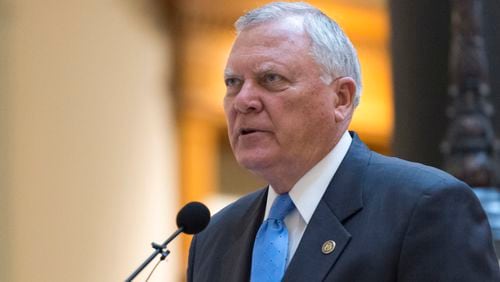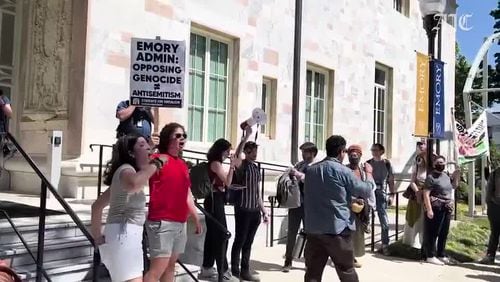Gov. Nathan Deal said Thursday that lawmakers next week will be asked to approve a package worth about $270 million to help clean up and aid South Georgia areas hit last month by Hurricane Michael.
Deal plans to make the formal call for the session, which is expected to start Tuesday and run five days, on Friday.
The governor's staffers had earlierput the figure at closer to $100 million, mostly for debris cleanup. The state will also pay part of local government costs, including overtime for staffers who worked long hours during and after the storm.
At a press conference Thursday to announce that Brian Kemp would begin his gubernatorial transition and resign as secretary of state, Deal said cost estimates had gone up.
“We have been reviewing on a financial basis the magnitude of what the special session should address,” Deal said. “The magnitude of reforms will be $270 million.
“I will be working with the leadership of both parties and taking a close look at what the call will look like.”
The governor did not detail how the money would be spent. That, staffers said, will be released Tuesday.
The state would essentially be fronting the cost of trying to get areas hit by Hurricane Michael back to some semblance of normal because the federal government is expected to eventually pick up the tab. However, Deal’s chief of staff, Chris Riley, said it could take months if not years for the federal government to fully reimburse the state and local governments.
State officials said losses from the storm in the agriculture industry alone could reach nearly $3 billion.
Timber losses are estimated at $1 billion, as about 1 million acres were destroyed, state figures show. Cotton, peanuts, pecans, vegetables and poultry also were hit hard.
Deal’s office announced that there would be a special session about two weeks before the heated gubernatorial election between Kemp and Democrat Stacey Abrams. Kemp has declared victory, but the Abrams campaign is preparing for a lengthy battle in the courtroom and in the media over the outcome.
Lawmakers will also get the chance to support — or reject — a tax break for Delta Air Lines and other air carriers that Deal coveted, possibly finalizing it before the governor leaves office in January.
Deal signed an executive order in July suspending collection of the state sales tax on jet fuel. The tax break, and an earlier decision not to collect local jet-fuel taxes, could save Delta about $40 million a year. The executive order now goes before the General Assembly.
Deal has squirreled away $2.5 billion in state reserves, but Riley said that money will be left for the next governor. Instead, Riley said, the state will use excess tax money that has come in so far this year, in the same way the General Assembly typically approves a midyear budget in the spring to cover new costs during the fiscal year, which ends June 30.
The governor’s office announced Monday that state tax collections were up 8.8 percent for the first four months of fiscal 2019, which began July 1. That is a far faster growth rate than what the state requires to fund its $26.2 billion budget this year, so there should be enough left for hurricane relief.
Stay on top of what’s happening in Georgia government and politics at ajc.com/politics.
About the Author








